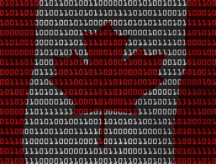How do Canadians celebrate Holi?
Today marks a day filled with festivities: lively colours, ringing laughter, and time with friends and family.
Discover if You Are Eligible for Canadian Immigration
This year, March 8th is Holi, the Hindu festival of colours. Commemorating the triumph of good over evil, the arrival of spring, and the blossoming of love—Holi is celebrated today not just in India (where the majority of Hindus live), but across the world through the Hindu diaspora.
Largely known by its vibrant celebrations, the festival of Holi is marked by the meeting of loved ones, the throwing of coloured powder and water (usually in streets or public places), the lighting of bonfires, the playing of festive music and much more. The festival is seen as a day of new beginnings, repentance, forgiveness for one’s mistakes, and the reconciliation of differences.
How do Canadians celebrate Holi?
Holi in Canada is celebrated in much the same way as in India, and other countries with prominent Hindu populations. While celebrations may not be as mainstream, the festival is still observed with great enthusiasm (and often with an ethnically diverse crowd) in Canada.
Usually, Holi celebrations in Canada are organized by a local Hindu community, a school organization, a private event organizer, or even the relevant municipal government.
For example, the Greater Toronto Area (GTA) alone has a number of options available for today’s celebration, with many more being deferred to the weekend. Student Unions are particularly active in this regard, with distinguished schools like McMaster, Sheridan College, and the Ontario College of Arts and Design hosting various events this year, through their Hindu student societies, or Student Unions.
Similar events can be found throughout Canada, especially in population centers with a large number of newcomers like Montreal or Vancouver.

Indians make up Canada’s largest group of newcomers
The popularity of Holi in Canada is due, in no small part, to the country’s large Indian immigrant population.
In 2021, 1.3 million people reported being of Indian heritage, comprising roughly 3.3% of Canada’s population.
In the same year, however, India was the top country of birth for new permanent residents (comprising 18% of all immigrants arriving in Canada). In 2022, India was also the most common country of origin for new Canadian citizens. Due to its educated workforce and professionals with in-demand skills, India is a huge part of Canada’s continuing immigration initiatives—bringing not just economic, but also social and cultural benefit to the country.
As immigration levels continue to increase, and Indian communities grow throughout Canada, it seems likely that Holi (and other Hindu festivals) will continue to feature prominently in Canadian culture.
The role of freedom and multiculturalism
Hindus are free to celebrate Holi in Canada, because of the right to religious privileges outlined in Canada’s Charter of Rights and Freedoms, and its policy of multiculturalism.
Section two of the Canadian Charter of Rights and Protections allows Canadians the right to follow any religion that they want (or no religion at all). This right is not just extended to all religions and ethnic groups, but also to temporary residents (like study and work permit holders)—meaning anyone in Canada is afforded these rights.
Outside of these formally enshrined freedoms, Canada also has a culture of multiculturalism. Effectively, multiculturalism means that anyone in Canada is free to continue practicing their culture, in accordance with their cultural, social, and ethnic heritage—ensuring that newcomers are not required to assimilate to one central culture.
This policy allows Canada to welcome and integrate people from widely different backgrounds. As a society, Canada embraces cultural diversity, enabling festivals like Holi (and the many events that commemorate the day) to occur in Canada without complication or hindrance, and with freedom and respect.
Discover if You Are Eligible for Canadian Immigration
© Want to advertise on CIC News? Click here to contact us.
- Do you need Canadian immigration assistance? Contact the Contact Cohen Immigration Law firm by completing our form
- Send us your feedback or your non-legal assistance questions by emailing us at media@canadavisa.com







